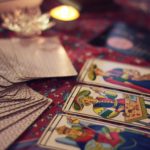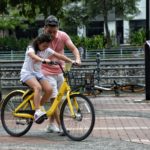I’ve lost control.
It’s become a common refrain. The pandemic pulled the rug out from under us. On some days, it feels like there’s no ground at all—we’re in a collective free fall.
When we feel like we’ve lost control, our instinct is to reassert it, grasping for any sense of comfort. Most of us attempt to do that by repeatedly refreshing our social media feeds and favorite news web sites to find that one update that will finally assuage our fears (or validate the constant pit of anxiety brewing in our stomach). We fill in the blanks with absolutes, straight lines, and “expert” predictions that inevitably turn out to be wrong.
We paradoxically prefer the certainty of worst-case scenarios over the uncertainty of the unknown (knowing for sure that physical distancing will last for six more months isn’t fun, but not knowing how long it will last is worse). Above all, we grieve the control we lost over our future.
Here’s the thing: You haven’t lost control. “Lose” means being deprived of something you once had. But you didn’t have control to begin with.
The pandemic has simply exposed what’s always been true: The ground beneath us isn’t stable. We’ve been pretending to stand on solid ground, even though we’ve always been on a small buoy in the middle of a rough ocean.
Control is an illusion. The cosmic banana peel is always around the corner. We don’t know what will happen tomorrow— this has been true long before the pandemic struck.
Nothing in the universe is stable. Atoms break apart. Stars collapse. Continents shift. People evolve. Entropy is the norm—not the exception.
Panic and anxiety feed on attempting to control what can’t be controlled. No matter how dedicated we are, tugging on a plant won’t make it grow faster.
There’s an alternative.
Instead of pulling on the plant, we can water it, give it time to grow, and let it surprise us with a flower.
Instead of being obsessed with knowing for certain what comes next, we can become curious about tomorrow.
Instead of fearing the unknown, we can remind ourselves that we’re far more resilient and adaptable than we give ourselves credit for.
Instead of feeling helpless, we can solve the problems the universe gave us as opposed to the problems we expected to solve.
In the end, there’s always a gap between the world as it is and the world as we wish it to be.
We can see the gap as a threat.
Or we can see the gap as our own blank canvas, ready to bring out our creative best.
Which will you choose?
Bold



